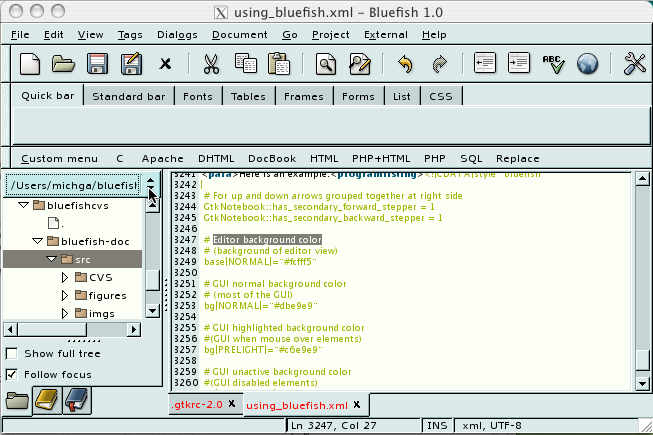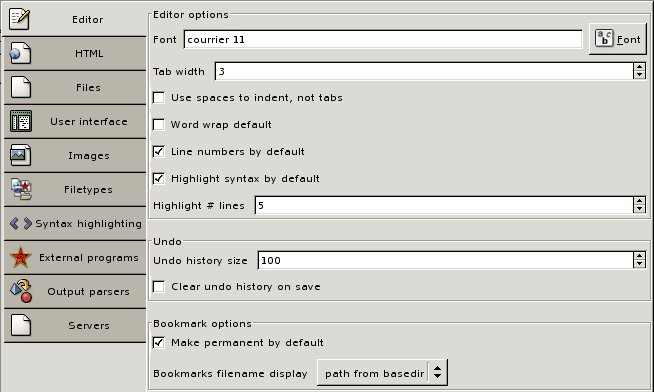Most of the editor appearance depends on your GKT theme, which may be customized through the ~/.gtkrc-2.0 resource file.
Parts that you may want to customize through that resource file are among others:
the background color of the editor
the colors of GUI elements
the position of arrows in a drop down list
You will find examples of themes resource files while searching for a gtkrc file in a gtk-2.0 folder within the various directories under $prefix/share/themes/, where $prefix is your installation prefix (it may be /usr, /usr/local, /sw, /opt, etc.).
![[Warning]](imgs/warning.png) | |
You should not customize those files, instead customize |
Here is an example made on a Crux theme:
style "bluefish"
{
# For up and down arrows grouped together at right side
GtkNotebook::has_secondary_forward_stepper = 1
GtkNotebook::has_secondary_backward_stepper = 1
# Editor background color
# (background of editor view)
base[NORMAL]="#fcfff5"
# GUI normal background color
# (most of the GUI)
bg[NORMAL]="#dbe9e9"
# GUI highlighted background color
#(GUI when mouse over elements)
bg[PRELIGHT]="#c6e9e9"
# GUI unactive background color
#(GUI disabled elements)
bg[INSENSITIVE]="#9fb2b2"
# GUI active background color
#(GUI enabled elements)
bg[ACTIVE]="#c7d4d4"
}
class "GtkWidget" style "bluefish"
![[Note]](imgs/note.png) | |
You may give any name to the style on the first line, provided that you use the same on the last line. The customization applies to any Gtk application. |
It will give this appearance to bluefish:
Other options for the Editor are available in the Editor tab of the Edit preferences panel accessible via the Edit preferences... button in the main tool bar. In particular you may want to customize the font of the editor, the end of line wrapping, and the undo history size:

